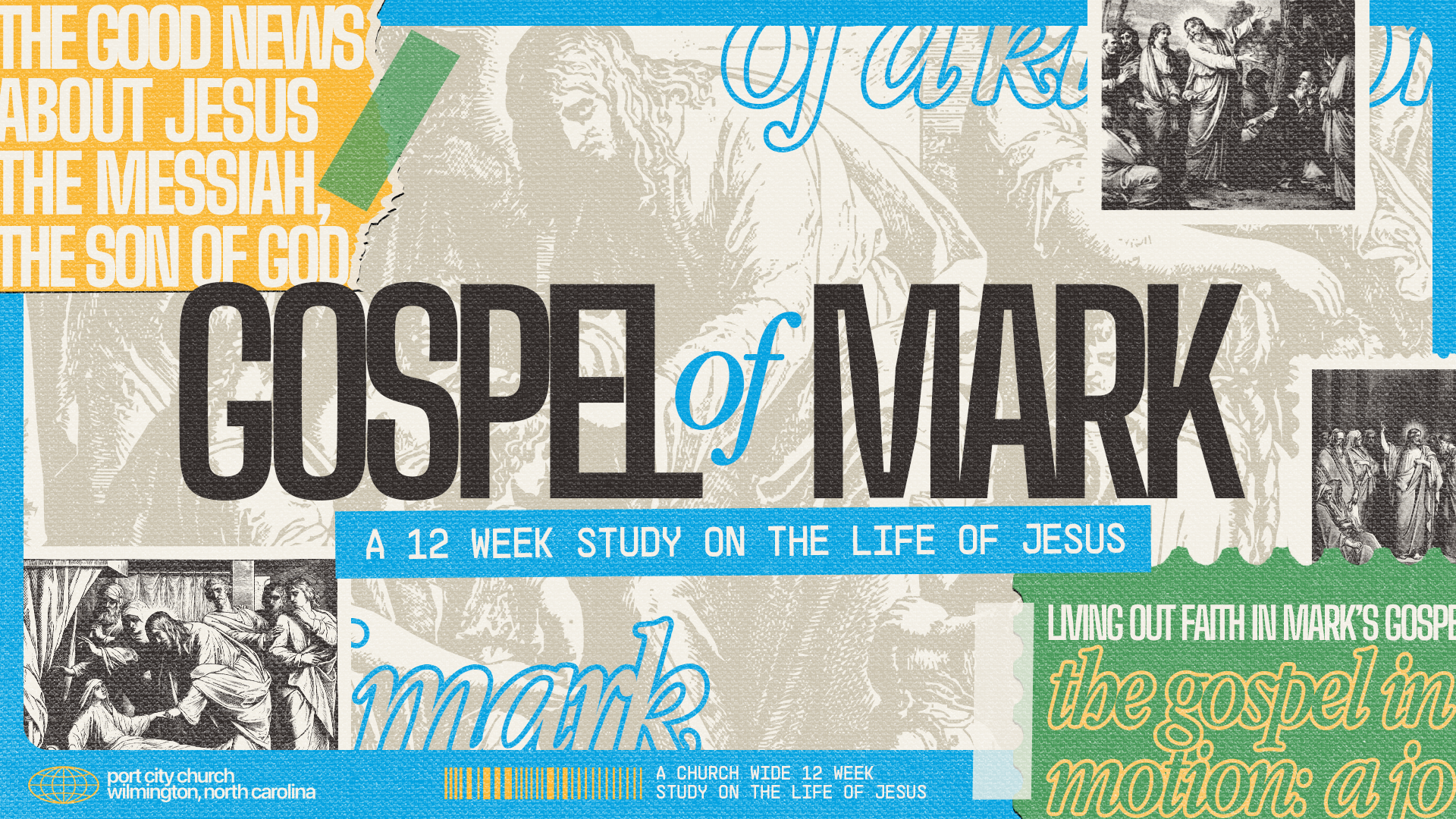Sharing a Meal
READ
The Passover meal Jesus shares with his disciples carries layers of meaning. It connects the ancient story of Israel's deliverance from Egypt with the new deliverance Jesus is about to accomplish.
Let’s take a moment to read Mark 14:12-31:
On the first day of the Festival of Unleavened Bread, when it was customary to sacrifice the Passover lamb, Jesus’ disciples asked him, “Where do you want us to go and make preparations for you to eat the Passover?”
So he sent two of his disciples, telling them, “Go into the city, and a man carrying a jar of water will meet you. Follow him. Say to the owner of the house he enters, ‘The Teacher asks: Where is my guest room, where I may eat the Passover with my disciples?’He will show you a large room upstairs, furnished and ready. Make preparations for us there.”
The disciples left, went into the city and found things just as Jesus had told them. So they prepared the Passover.
When evening came, Jesus arrived with the Twelve. While they were reclining at the table eating, he said, “Truly I tell you, one of you will betray me—one who is eating with me.”
They were saddened, and one by one they said to him, “Surely you don’t mean me?”
“It is one of the Twelve,” he replied, “one who dips bread into the bowl with me. The Son of Man will go just as it is written about him. But woe to that man who betrays the Son of Man! It would be better for him if he had not been born.”
While they were eating, Jesus took bread, and when he had given thanks, he broke it and gave it to his disciples, saying, “Take it; this is my body.”
Then he took a cup, and when he had given thanks, he gave it to them, and they all drank from it.
“This is my blood of the[a] covenant, which is poured out for many,” he said to them. “Truly I tell you, I will not drink again from the fruit of the vine until that day when I drink it new in the kingdom of God.”
When they had sung a hymn, they went out to the Mount of Olives.
“You will all fall away,” Jesus told them, “for it is written: “‘I will strike the shepherd, and the sheep will be scattered.’ But after I have risen, I will go ahead of you into Galilee.”
Peter declared, “Even if all fall away, I will not.”
“Truly I tell you,” Jesus answered, “today—yes, tonight—before the rooster crows twice[c] you yourself will disown me three times.”
But Peter insisted emphatically, “Even if I have to die with you, I will never disown you.” And all the others said the same.
REFLECT
In this intimate gathering, Jesus takes familiar elements of the Passover—bread and wine—and gives them startling new significance: "This is my body... This is my blood of the covenant, which is poured out for many."
Even as Jesus institutes this sacred meal, shadows gather. He announces that one of the Twelve will betray him. Each disciple asks, "Surely not I?"—revealing their own uncertainty about their loyalty. Even Peter, who vehemently declares his faithfulness, will deny Jesus three times before the night is over.
This passage holds up an uncomfortable mirror. We see ourselves in the disciples—earnest in our intentions yet unaware of our frailty. How often have we, like Peter, overestimated our spiritual strength? How many times have we confidently declared our devotion, only to falter when following Jesus becomes difficult or uncomfortable?
Yet this story isn't primarily about human weakness but about divine faithfulness. Jesus knows exactly what's coming—both what he will suffer and how his followers will fail him—yet he establishes the meal that will sustain his people through the centuries. He knows Peter will deny him, yet he still entrusts his church to this imperfect disciple. The bread is broken, the cup is poured out "for many"—including those who will abandon him.
In this sacred meal, we're reminded that our place at God's table depends not on our perfect performance but on Christ's perfect sacrifice. The communion we share isn't a reward for faithfulness but the means by which our faithfulness is sustained. As we receive the bread and cup, we acknowledge both our need and Christ's sufficiency.
RESPOND
Take a moment to process what God might be leading you to do in light of what you read.
How does Jesus's foreknowledge of his disciples' failures change your understanding of his love for you?
What does it mean to you that Jesus established communion knowing it would be shared by imperfect followers throughout history?
REST
Take a moment to rest in God’s presence and consider one thing you can take away from your time reading, then close your devotional experience by praying:
Jesus, thank you for Your covenant of grace that doesn't depend on my perfect faithfulness but on Your perfect sacrifice. Forgive my presumption when I overestimate my own strength. Help me to find my place at Your table not because I am worthy, but because You welcome the unworthy. Amen.

